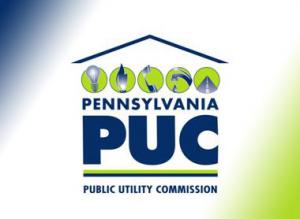Pennsylvania Cuts LDC's Requested Increase by Nearly Half

In a rate proceeding resolved by settlement, the Pennsylvania Public Utility Commission has authorized a natural gas local distribution company (LDC) to raise its rates by $11.25 million, an average increase of 5.4%. The commission estimated that a typical residential customer will see bills climb by about $4.46 per month, while commercial heating customers will face a monthly increase of almost $11. However, the commission said, had the company, UGI Penn Natural Gas, been awarded the full extent of the rate relief sought, those increases would have been almost twice as high. The commission explained that UGI Penn had asked for $21.7 million in additional revenues, which would have translated into an increase of about 10.4%.
In support of its rate plan, the company noted that its last base rate increase had been effectuated back in 2009. Since that time, the LDC said, it has embarked on a number of infrastructure upgrades, improvements, and replacements. As an example, it pointed to substantial capital investments totaling almost $400 million over the last eight years. According to the LDC, such capital additions have increased its rate base by nearly 31%. The company attested that its revenue requirement should be raised in recognition of the new rate base level.
As originally tendered, UGI Penn's rate proposal included a couple of rate design changes that generated significant debate. For one, the LDC proposed replacing its standard monthly customer charge with a much higher "distribution customer charge" (DCC) instead.
As filed, the residential DCC would have been $18.50 per month while the commercial and industrial DCC would have been $37.50 a month. Both would have represented significant increases from the LDC's current monthly charges of $13.17 and $32.41, respectively. For residential ratepayers, the difference would have been more than 40%, with a lower, but still substantial, 15% increase taking effect for commercial and industrial customers.
Eventually though, the parties were able to come to a consensus, which resulted in the company's existing customer charge structure being maintained, albeit with minimal increases. Under the agreement, the residential customer charge will rise by a mere eight cents per month, to $13.25. For nonresidential customers, the charge will go up by $1.59 per month, to $34.
However, UGI Penn did succeed in winning approval of a new rider through which to recover outside of base rates the costs of a new technology and economic development (TED) program. The parties stipulated that the program is to be instituted on a pilot basis, with the associated surcharge in place for the three-year term of the pilot.
The program is targeted at investigating ways to cost-effectively expand the LDC's system and extend its facilities so as to take on new customer load without burdening existing customers. Although UGI Penn had initially proposed the TED initiative as a five-year plan, it assented to the more limited threeyear time frame, conceding that three years is probably sufficient for testing the program.
Other portions of the settlement pertain to the company's low-income usage reduction program (LIURP). The negotiating parties determined that UGI Penn should augment its annual LIURP budget by $50,000 per year, an amount that is commensurate with the percentage distribution rate increase for the residential customer class.
Turning to the company's energy efficiency and conservation (EE&C) plan, the rate agreement requires the LDC to assign at least $100,000 of its annual EE&C funds to projects administered through the LIURP. The commission observed that taken as a whole, the company's EE&C program, inclusive of the LIURP elements, are designed to reduce energy consumption systemwide by more than 4,100 billion British thermal units over the lifetime of the measures installed under the plan.
In accepting the proffered stipulation, the commission deemed the terms appropriate overall. However, it stated that because the rate agreement had been presented as a "black box" settlement, it did not know exactly how the parties came to the conclusions they did. Nevertheless, the commission said that a settlement by definition denotes compromise and reasonableness, such that the rate agreement would be approved.
The settlement made no reference to cost of capital or rate of return on equity. Pennsylvania Public Utility Commission et al. v. UGI Penn Natural Gas, Inc., R-2016- 2580030 et al., Aug. 31, 2017 (Pa.P.U.C.).



